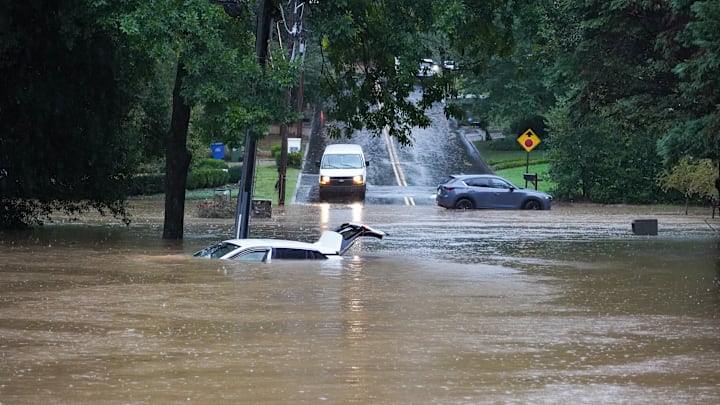It seems like any time you watch the news or scroll through social media, there are plenty of reports warning of the dangers of climate change. We can see evidence through floods, melting glaciers, and higher temperatures, but what effect does climate change have on human health? Keep reading to find out.
Rising temperatures increase the risk of heat-related illnesses and deaths.
As global temperatures rise, the frequency and severity of heat waves increase, which can lead to heat stress, heat exhaustion, and even death. Vulnerable groups, including older people, children, and people with chronic conditions, are particularly at risk from heat-related illnesses. The World Health Organization reports that heat-related deaths have increased by 85% since the early 2000s.
Extreme weather events lead to physical injuries and mental health impacts.
Climate change intensifies natural disasters like hurricanes, floods, and wildfires. These events cause not only direct physical injuries but also long-term mental health consequences, such as anxiety, depression, and PTSD, especially among people who have lost property or loved ones as a result of bad weather.
Changes in air quality worsen respiratory and cardiovascular diseases.
As air pollution continues to get worse, exasperated by higher temperatures and more frequent wildfires, we are seeing an increase in cardiovascular and respiratory issues, like asthma and chronic obstructive pulmonary disease.
Shifting ecosystems contribute to the spread of infectious diseases.
Climate change alters the habitats of all living things, including disease-carrying organisms like mosquitoes and ticks. This leads to a rise in vector-borne diseases, including malaria, dengue fever, and Lyme disease. Warmer climates can also extend the geographical range of these diseases, creating larger danger zones.
Water scarcity and contamination increase the risk of waterborne diseases.
In many cases, climate change can lead to droughts, which can lead to contaminated water supplies due to higher concentrations of pollutants and reduced oxygen levels in the water due to higher temperatures, which can affect fish and ecosystems. Waterborne diseases such as cholera, giardia, and other gastrointestinal illnesses will increase during a drought, and contamination can occur from flooding as well.
Food security declines, leading to malnutrition and foodborne illnesses
Rising temperatures and changing rainfall patterns can affect agricultural production, which can lead to food shortages and crops that have a low nutritional value. Malnutrition can lead to a weaker immune system, making people more susceptible to disease.
Vulnerable populations are more at risk.
Communities with fewer resources due to low-income populations and those living in developing countries face even greater challenges as they lack access to good healthcare or the resources needed to mitigate the impact of climate change on their health.
What can I do?
- Reduce your carbon footprint by using public transportation, cycling, or walking instead of driving.
- Make energy-efficient upgrades to your home, such as using LED lighting and investing in solar energy.
- Minimize single-use plastics, recycle, and compost organic waste.
- Educate yourself and your community about the health risks associated with climate change.
Follow GeekSided to stay up to date with how tech and science are helping to better our world.
